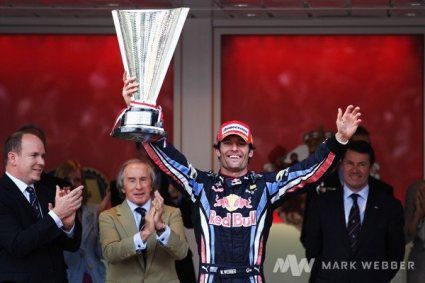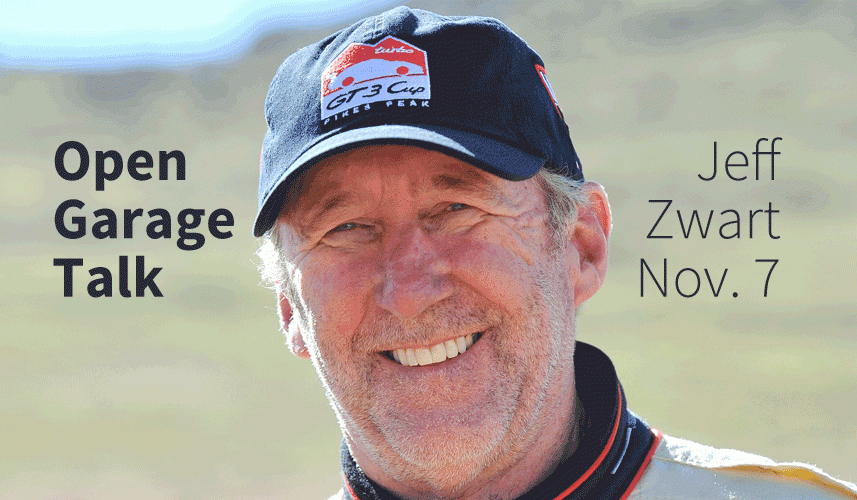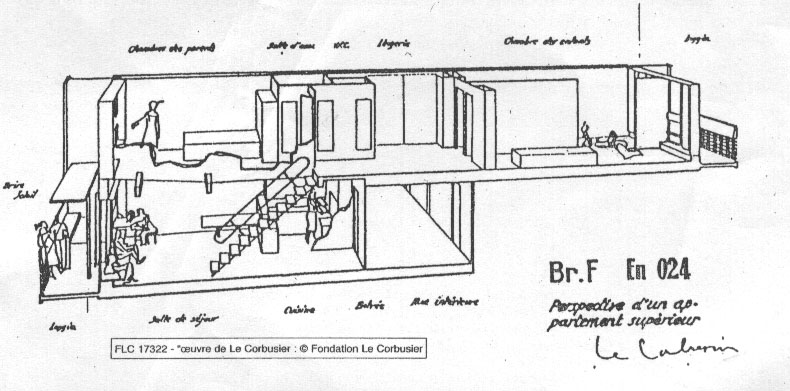Author Archives: metacool
Monument to Change as it Changes
How might we begin to see change not as something to be feared, but as a source of renewal, growth, and infinite possibility?
metacool Thought of the Day
Jeffrey Walker on flow, jazz, and your role in creative teams
I love this talk by Jeffrey Walker.
When people ask me how I became a designer, I talk about some of the formative experiences in my childhood:
- Having easy access to a big box of Legos (of course), and a kind and caring older brother who showed me how to build some really impressive stuff.
- My seven-year odyssey to transform an off-the-shelf BMX bike into a pure expression of my personal, there’s-no-gnarly-jump-I-won’t-take point of view. (only the original front crank and chain remained by the time I had to leave it to go to college)
- Nine intense, wonderful years playing the saxophone in various jazz bands.
And that last one is always the most significant to me. I wrote a post about on the theme of music and teamwork and flow about a year ago. To echo Jeff’s great thoughts in the video above, I wrote:
Infusing creativity: I learned so much from being in 8 O’Clock with Mr. C. Practical things, like how to work with a creative team of people toward a shared goal and how to stand up in front of hundreds of people and do your unique, personal thing. It also gave me the creative confidence to formulate a strong personal point of view and to create on top of that; I can think of of few better ways to prepare for life as a designer than to learn how to do jazz improvisation under pressure in front of a live audience. On a more intangible level, my hours blowing a horn gave me a deep appreciation for the more ethereal aspects of a life well-lied, such as beauty, elegance, and joy.
Most important of all, I was able to six years of daily reaching a state of flow. When everything is going right in the creative act, you feel a sense of transcendent joy and power and mastery. It’s simply so awesome to experience as an individual, and in my opinion, it’s even better when done as a team. Just look at the body language of Brecker and Stern in that video above — there’s extremely deep communication going on between then without a spoken word shared, and they take deep delight in helping each other get up to the top of that peak, and beyond.
When I interview people for design roles at IDEO, I’m always listening for a sense of whether the person in front of me has ever experienced that sense of flow. Knowing it, wanting to get back there, knowing how to get back there, these are all things I look for in people who are going to be great design thinkers. And what a bonus if that experience of flow came via some sort of team activity, be it sport or music or being part of a Girl Scout troop.
To be sure, normal education plays a central role in giving you depth of expertise in your area of “craft” as a designer. That could be engineering school if you’re an ME, business school if you’re a Biz Designer, industrial design school if you’re an industrial designer, and so forth… you get the picture.
But it might be that the most important schools of experience are those found on a stage, or out on a soccer field, or out in the woods around a camp fire. Knowing the delight of losing oneself in the passion of the activity in front of you, and understanding how do so in concert with a group of like-minded individuals around you, that’s the key to becoming a great designer.
metacool Thought of the Day
“You’ll know only if you try.”
Mark Webber: the power of graft
Mark Webber retired from Formula 1 racing this past weekend. He had a very successful career there, winning notable events such as Monaco, and also surviving the kinds of epic accidents which are unfortunately part and parcel of a life spent running at the edge.
I admire Webber and his achievements on many levels, not the least of which is his openness about what it takes to operate at the highest levels of accomplishment. He makes it very clear that innate talent will only take you so far:
Maybe I did not have the most absolute natural flair and talent, but I knew that if I grafted and worked hard I’d soon get awesome results. But I also smashed a lot of guys who had more talent than me, because they didn’t work as hard as me. I learned that about myself. How important it was to graft and just get my head down. I’ve been doing that for most of my career.
I love this usage of the word “graft”. As a practitioner of American English, I understood “graft” to mean either something you do with stems of plants, or a way of gaining wealth or advantage nefariously.
There’s no career that’s on a rocket ship all the way through. There has to be adversity and testing moments. You don’t learn too much if you’re never challenged. In British and Australian English—Webber is a proud Australian—graft turns out to mean something very different. In an antipodean context, t’s about hard work, not corrupt dealings. Graft: say it out loud a few times. There’s some nice onomatopoeia at play there… conjures up the feeling of going “GRRRRRR!” like a tiger, or getting to the essence of the word “grit”, and the nice tie that word has to the essence of the entrepreneurial spirit, doing the most that you can with whatever you’ve got. In that spirit, how perfect then is Webber’s Twitter handle: @AussiGrit
I couldn’t agree more with Webber says above. Hard work isn’t the only answer, but when everything and everyone around you has similar circumstances, resources, and motivations, what’s going the make the difference? Hard Work. Graft. GRRRRRRR!
So go out and graft, people. Just get your head down and graft.
Why your creative culture needs a few kooks and spoon benders
A few weeks ago, I was hanging out with a person steeped in the art and science of bringing cool stuff to life, and they made a profound observation: every creative culture needs a few kooks and spoon benders.
I thought about it and agreed, but it didn’t really click until I witnessed the following rendition of My Way. I’ll explain why this is so after you watch a few minutes of this video (be sure to watch through to the part with the drummer…):
Watching this, your reaction may fall into one of two categories. Or you may start in the first camp and transition to the second, as I did:
- This drummer’s demeanor is annoying! He is an insecure, narcissistic, attention-seeker. Were he a teenager, he’d be sporting blue hair. Who does he think he is? Why is he distracting from the nice vocals of the woman upfront? And please stop with the twirling-drumstick trick, and what’s up with that stand-up cymbal? Above all, get him away from me, and please don’t make me be in a band with him.
- This guy’s energy is inspiring, infectious, and makes me want to get out there and embrace my unique creative ability to make things happen! In his stick twirls, manic expressiveness, and unabashed joy in banging on drums, I see myself on a great day, when the muse has arrived, I’m in flow, and creating like nobody’s business. Give me more of this—let me watch that video again. Oh, and I want a white tux jacket.
Here’s the deal: This drummer is a spoon-bender, he’s definitely kooky in mannerism and presence. He’s deviant. He’s not afraid to be what he is, no matter whether it’s a fit to his immediate social context. We think spoon-benders are kooks and weirdos because doing something out of the ordinary is pretty strange, when you stop and think about it. But since having the courage to do so publicly and risk criticism, embarrassment, and failure is the price of entry when it comes to innovating, shouldn’t more of us be taking cues from the kooks?
I’m not saying that you should literally go out and hire a spoon-bender (though it would be cool if you did). But I do think that a high-functioning creative culture is populated by a subset of individuals who can’t help but be who they are, and what they are is someone put on Earth to do remarkable things. These are your kooks. Their unrelenting confidence in their own unique mode of creative expression—even if it be the transmogrification of metallic feeding tools—helps everyone else have the courage to go after things in a big way, too. If you don’t have them, you won’t have any good examples of what extreme passion of expression looks like.
Have a few kooks in your organization, shine a light on their creative behaviors, and watch the positive effects ripple through your culture.
Jeff Zwart at Stanford Revs
I’m extremely thrilled/proud/stoked to be hosting renowned film director, racer, and photographer Jeff Zwart on November 7 for an Open Garage Talk at Stanford. The event is sponsored by the Revs Program at Stanford and the Center for Automotive Research at Stanford. Jeff will be giving a talk titled “Telling Stories with Cars”.
Jeff is so good at telling stories that any additional conversation with me may be superfluous, but I promise to work with him to use all the road and keep it (very) sideways, so let’s see where we go. If you’ve ever perused my other blog Unabashed Gearhead Gnarlyness, you know how much I enjoy his work behind the lens and behind the wheel of a car, examples of which are both posted below. I have nine hundred and eleven questions I want to ask him about his creative process and how he makes all these amazing things happen—and I’m sure you have a bunch, too. It will be an awesome evening.
Hope to see you there! Registration is required, so sign up now!
metacool Thought of the Day
Please join the Creative Confidence Challenge
My colleagues and friends David and Tom Kelley are holding a challenge over at OpenIDEO around the idea of inspiring young people to grow their creative confidence. It’s an incredibly worthy cause, and it will be a fun design challenge to tackle, too!
I’m a registered contributor on the OpenIDEO platform, and I hope you are, too. I’ll see you around this challenge!



